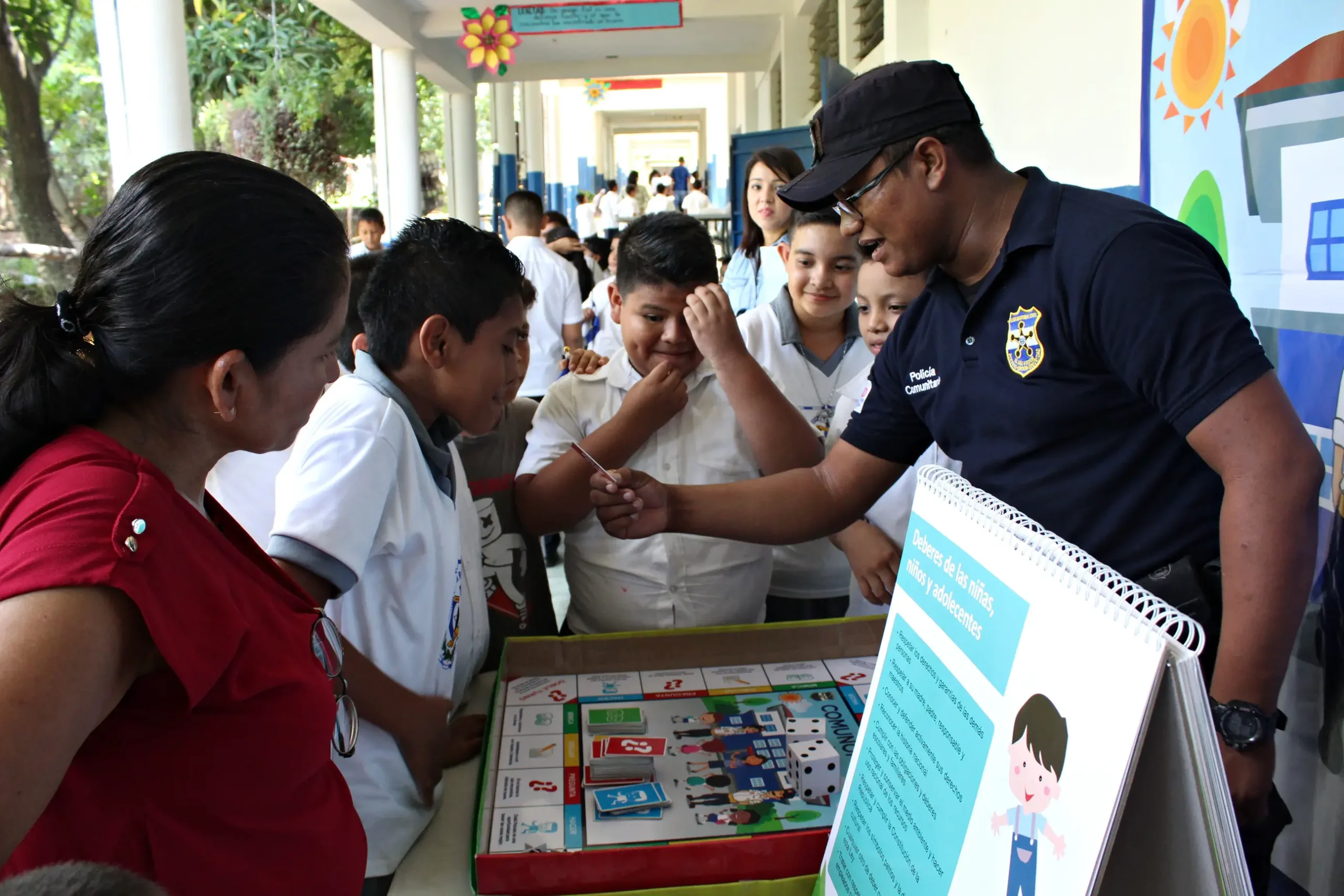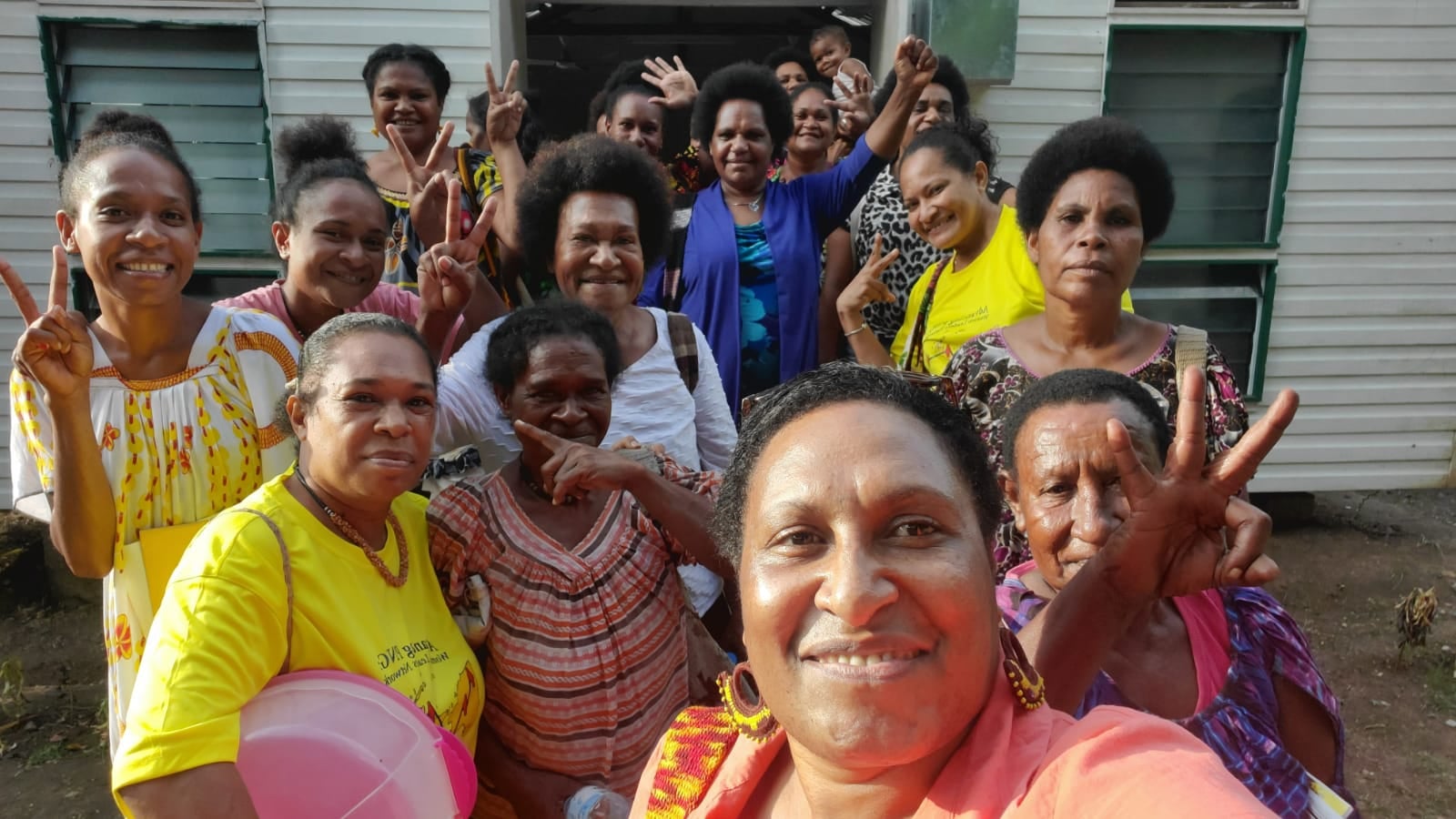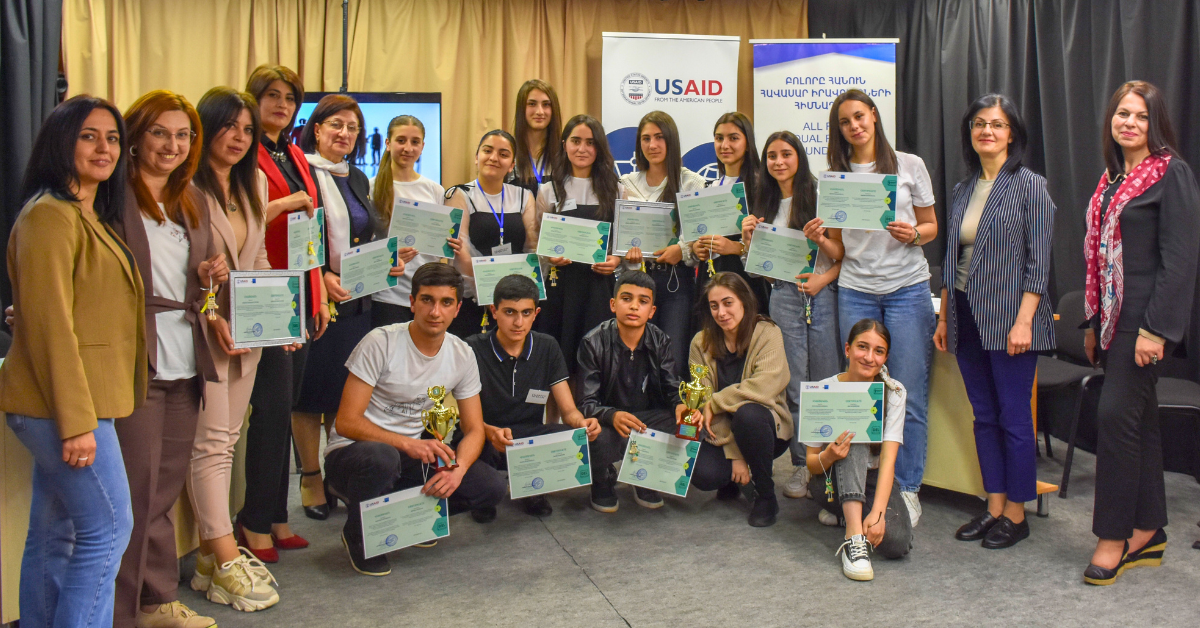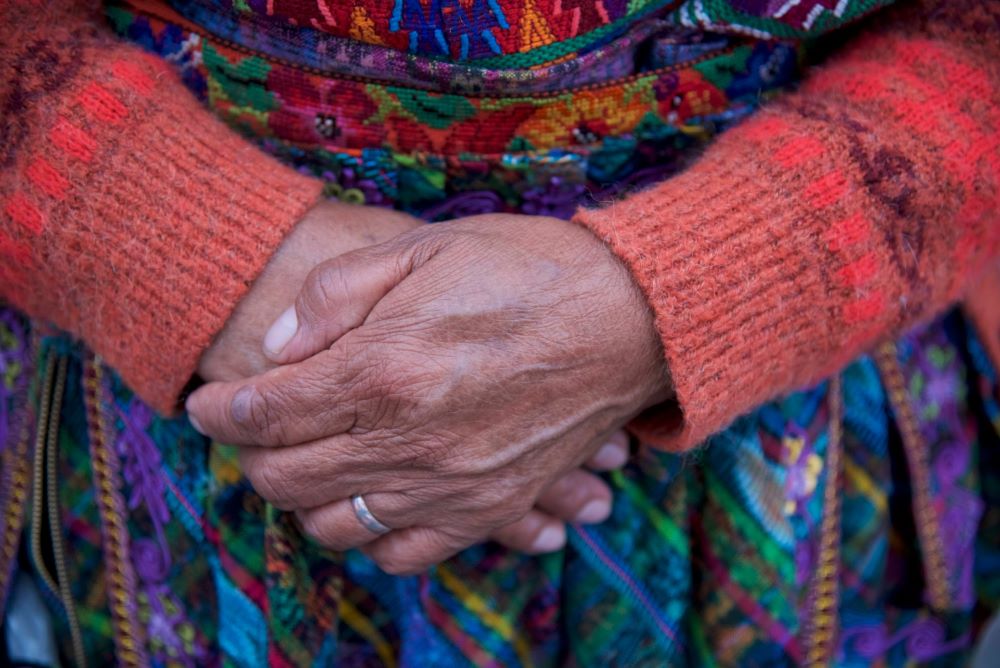People-centered justice is an approach to tackle the justice gap in developing nations, but it requires a mindset shift on the part of justice actors and the development sector alike.
As justice systems around the world struggle to be more responsive to the needs of their citizens, people-centered justice (PCJ) is a promising means to close the justice gap. Across the world, the widespread lack of access to justice services—activities aimed at upholding and promoting fairness, equality, and the rule of law—has a deep effect on people’s lives and on development outcomes. This can contribute to joblessness, loss of property, homelessness, and ongoing grievances that cause stress on individuals, families, and societies as a whole.

A community police event takes place in El Salvador. People-centered justice involves not only procedural changes but also a shift in mindset and a commitment to fostering a legal system that truly serves the needs of individuals and communities.
To help address the justice gap, Dexis is pioneering a large-scale PCJ project, the USAID-Funded Independent and Effective Justice Activity in El Salvador. While institutional reform is an important and necessary element of justice sector reform, the fundamental focus of Dexis’ PCJ approach in El Salvador is defined and driven not by the needs of institutions but by the needs of the users those institutions are meant to serve. Justice institutions become the means, not the end, of rule of law assistance.
When it comes to dealing with crime, a people-centered justice approach increases access to redress, victim services, and prosecution and adjudication that are bound by due process rights. It increases trust in the legal system, enhances community wellbeing, and ultimately can help reduce criminal behavior. In Central America, where insecurity and low access to justice contribute to people’s decision to migrate, PCJ can help respond to the root causes of migration.
Initiating the Shift to PCJ
People-centered justice is being embraced by donor governments and multilateral agencies, including USAID and the Organisation for Economic Co-operation and Development (OECD). As USAID states in its 2023 Rule of Law Policy, a people-centered approach “requires a shift in mindsets and behaviors of local reformers and rule of law actors as well as international donors alike.”
Introducing PCJ into justice systems necessitates a deeply nuanced understanding of the local context—including the needs of a diverse range of justice-seekers and the cultural and political dynamics surrounding them—as well as sustained engagement with justice actors such as the courts, public defense, prosecution, police, bar associations, lawyers, and legal aid organizations. PCJ interventions must also be informed by data and evidence about people’s preferences, past experiences in solving their grievances and legal needs, and aspirations about what the justice system should do for them and how it can meet their needs.
Putting PCJ into Practice
Operationally, PCJ strategies and approaches can take many forms. For example, they may include community-based, free legal services and referrals; technical assistance to improve handling and use of evidence; strengthening lawyering skills for hearings/trials; introducing trauma-informed skills for interviewing witnesses and representing victims; and specialized training for different types of crimes and for the stages in the appeals process. PCJ can also include training and coaching defenders on people-centered techniques, including how to engage, interact, interview, and inform clients with empathy.
Court user committees (CUCs), which bring together justice users and justice providers by creating space for dialogue, are also an effective PCJ mechanism for building trust between users and courts and bridging the divide between an overly formalistic and distant justice sector and users who yearn to be heard and validated. CUCs help justice sector operators see the perspective of the users while allowing users to appreciate the constraints and challenges that courts and individual judges, clerks, and court staff face. This, in turn, creates accountability that is based on solidarity and mutuality—accountability that is more voluntary than it is enforced.
Ultimately, PCJ reframes the justice sector as a service provider. While more data are still needed, by incorporating PCJ approaches in a way that is responsive to the unique conditions present in each national and subnational context, and by applying a rigorous learning approach to project implementation, development actors can help transform justice services for the better. Closing the justice gap is an immense task. People-centered approaches are a key part of the solution.







